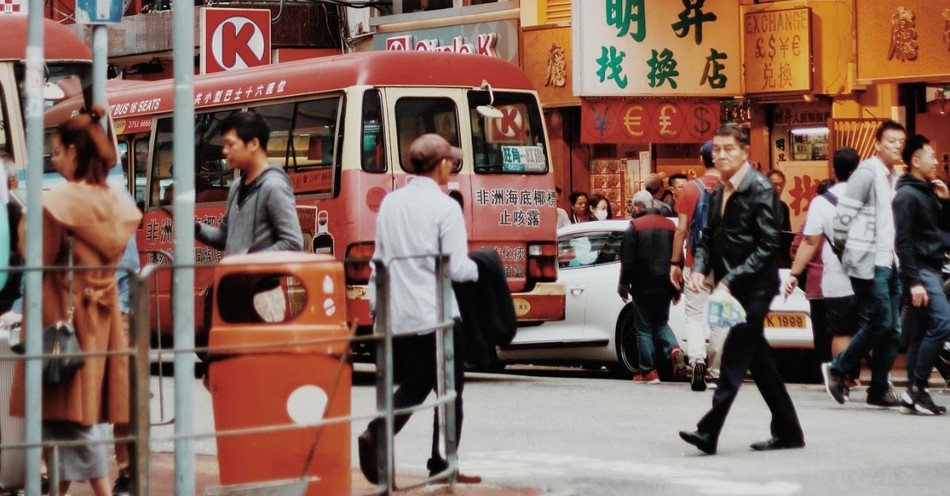On the second Sunday in June, hundreds of thousands of people filled the streets of Hong Kong to protest a proposed law that would allow people to be extradited from the former British colony to mainland China.
Yet, as the New York Times reported and subsequent media interviews have made clear, these protests are about more than one law. They’re about preserving the freedoms that were promised when Britain returned control over Hong Kong to China in 1997, something that’s been increasingly at risk given the increasingly dictatorial nature of China’s Communist Party.
To understand this story, you need to know a bit of the backdrop of when Great Britain ceded Hong Kong back to China in 1997. The agreement clearly stated a governing principle, dubbed “One Country, Two Systems” that would govern relations between Hong Kong and mainland China for 50 years.
According to the agreement, Hong Kong’s domestic affairs would be governed by systems it inherited from Britain, which included freedom of speech, freedom of religion, and eventually, free elections.
Under this arrangement, Hong Kong became freer and more prosperous than the rest of China. This made the rest of China look bad. So less than 20 years into the agreed-upon 50 years, China began undermining Hong Kong’s autonomy by attempting to “pre-screen” candidates in their 2014 elections.
The response from Hong Kong became known as the “Umbrella Movement,” and included nine days of protest against Beijing’s violation of the agreement. In 2014, as now, the protests were more than an objection to a singular law or political change.
As the Wall Street Journal reported back then, the protests contained “an undercurrent of another, much older tension: Between Christianity and Communist China.” At least three of the founders of the Umbrella Movement were Christians, including the face of the movement, Joshua Wong.
In fact, there was a strong Christian presence felt throughout the protests: “prayer groups, crosses, and protesters reading Bibles in the street.” Churches played a “quiet but important role in the city’s protests, by offering food and shelter to demonstrators.”
Oh, and one more thing to know (again from the Wall Street Journal): “Hong Kong churches have long tried to spread Christianity in China. Protestant pastors based in Hong Kong have helped propagate the evangelical brands of Christianity that have alarmed the Chinese leadership in Beijing with their fast growth.”
In recent years, Beijing has gone from being alarmed about the growth of Christianity to declaring war on it.
The people of Hong Kong realize that things have gotten a lot worse in China since 2014. They want nothing to do with Xi’s “Socialism with Chinese characteristics.” And because (unlike their mainland cousins) their internet isn’t censored, they know what is happening to the Uighurs and to the Christians today on the mainland.
It shouldn’t surprise us that, as Christianity Today reported, there’s a significant Christian dimension to this year’s protests as well, just like there was in 2014. In fact, back in April, several Christians, including Joshua Wong, were arrested and imprisoned for taking part in pro-democracy protests.
Christians in Hong Kong aren’t buying the government’s spin that the proposed new law would “ensure that [Hong Kong does] not become a haven for fugitives and that existing legal protections and human rights would remain in force.” They realize that subverting Hong Kong’s autonomy is yet another way for Communist officials to suppress Christianity and its influence. They realize that, as the Times points out, laws like these are intended to “extend China’s reach into Hong Kong and strip its residents of the protection of the law.”
And we can be certain, the first protections to be stripped will be those of Hong Kong’s Christians.
BreakPoint is a Christian worldview ministry that seeks to build and resource a movement of Christians committed to living and defending Christian worldview in all areas of life. Begun by Chuck Colson in 1991 as a daily radio broadcast, BreakPoint provides a Christian perspective on today’s news and trends via radio, interactive media, and print. Today BreakPoint commentaries, co-hosted by Eric Metaxas and John Stonestreet, air daily on more than 1,200 outlets with an estimated weekly listening audience of eight million people. Feel free to contact us at BreakPoint.org where you can read and search answers to common questions.
John Stonestreet, the host of The Point, a daily national radio program, provides thought-provoking commentaries on current events and life issues from a biblical worldview. John holds degrees from Trinity Evangelical Divinity School (IL) and Bryan College (TN), and is the co-author of Making Sense of Your World: A Biblical Worldview.
Publication date: June 13, 2019
Photo courtesy: Sarah Arista/Unsplash




